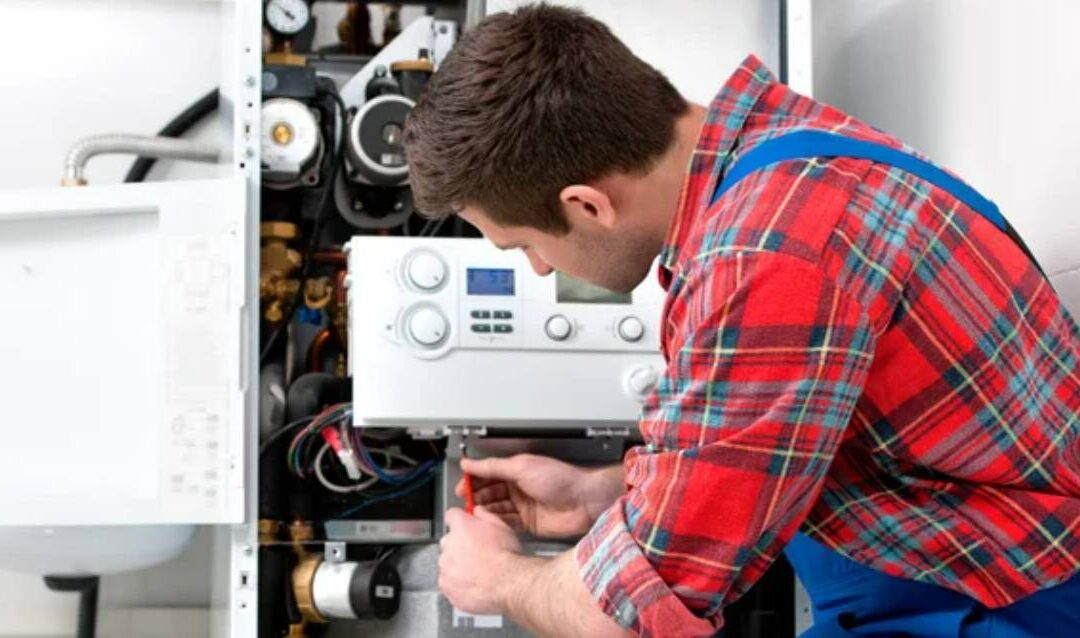What is HVAC? That is a question that many have asked and few can fully explain. While most people have heard of HVAC systems, some do not know what the acronym stands for and why an efficient HVAC system is important to a home or workplace. HVAC stands for heating, ventilating, and air conditioning. In short, an HVAC system heats and cools an indoor environment or a vehicular environment. It aims to create thermal comfort and clean, high-quality indoor air. HVAC systems are designed by mechanical engineers who build them with three key principles in mind: thermodynamics, heat transfer, and fluid mechanics.
What Is HVAC: Heating
HVAC systems typically heat an indoor environment with central heating. This entails a furnace, boiler or heat pump to warm water, air or steam in a central place like a home’s furnace room or a building’s mechanical room. The system draws in fresh air from the outdoors through a vent. This air is sent to the indoor heat exchanger section to create positive air pressure. The vent’s opening can be adjusted to manipulate the amount of fresh air that makes up the return air. Fresh air intake is usually around 10 percent. The heat that the furnace generates is then transferred through convection or conduction throughout the building by way of ducts and vents. Without an HVAC system, homes and businesses would have to rely on inefficient means of heating like space heaters and fireplaces.
What IS HVAC: Air Conditioning
The air conditioning component of an HVAC system provides both cool air and humidity control for a building. HVAC system cooling occurs with the removal of heat through radiation, conduction or convection. Refrigerants are sent through a pump system where a compressor is used to create a thermodynamic refrigeration cycle. Or, refrigerants can be used in a free cooling system that makes use of pumps to create cool air. Air is distributed throughout the indoor environment by way a central air conditioning system of ducts and vents. Without cool air created by an HVAC system, people would have to rely on less efficient sources to produce cool air like fans and small window mounted air conditioners.

Questions to Ask About Commercial Air Conditioning and Heating Maintenance Valley Comfort Heating and Air CA
What Is HVAC: Ventilation
While many people understand that their HVAC systems heat and cool their homes, some do not understand that these systems are also critical for providing the proper ventilation. Ventilating changes (replaces) air in an indoor environment to ensure that there is high-quality, clean and safe air to breath. An HVAC system’s ventilation component removes nasty smells, smoke, carbon dioxide, unnecessary moisture, dust, bacteria and other contaminants from the air circulating throughout the building.
It helps to prevent indoor air from becoming too stagnant by constantly replenishing oxygen. It introduces outside air and also circulates the air that is already in the building. The ventilation system creates room air distribution by ensuring that air is removed and delivered from spaces within a building on a regular basis. Without a functioning ventilation component, an HVAC system would merely be able to heat and cool indoor living environments but not filter out impurities. The ventilation system creates a comfortable environment where fresh air is constantly cycled in and stale air is sent out.
Every building can benefit from an HVAC system. It is an efficient means of generating warm and cool air while consistently supplying the indoor space with an influx of fresh air. While an HVAC system requires an up front investment, it will ensure the continuous comfort of those residing or working in the building.
Frequently Asked Questions for HVAC Systems
1. What does HVAC stand for?
HVAC stands for Heating, Ventilation, and Air Conditioning. These systems are essential for maintaining comfortable temperatures and good air quality in homes and commercial buildings. They work by regulating indoor environments through heating, cooling, and ensuring proper ventilation.
2. How does an HVAC system heat a building?
HVAC systems heat a building using a furnace, boiler, or heat pump. These systems warm air, water, or steam in a central location and distribute it through ducts or pipes. Fresh air is drawn in from outside, heated, and then circulated throughout the building, ensuring a consistent and comfortable indoor temperature.
3. How do HVAC systems cool indoor spaces?
HVAC systems cool indoor spaces by removing heat through a refrigeration cycle. Refrigerants are compressed and expanded to absorb and release heat, which cools the air. This cool air is then distributed through ducts and vents. This method is more efficient than using fans or window units for cooling large spaces.
4. What is the role of ventilation in an HVAC system?
Ventilation in an HVAC system ensures the exchange of indoor and outdoor air to maintain air quality. It removes pollutants, odors, and excess moisture while replenishing oxygen levels. Proper ventilation prevents indoor air from becoming stale and helps create a healthier living environment.
5. How often should an HVAC system be serviced?
An HVAC system should be serviced at least twice a year, ideally before the heating and cooling seasons. Regular maintenance, such as changing filters and checking for leaks, can improve efficiency by up to 15% and extend the system’s lifespan. Annual check-ups by a professional can prevent costly repairs and ensure optimal performance.
6. What are the benefits of using an HVAC system in a home or office?
HVAC systems provide consistent heating and cooling, improve air quality, and ensure a comfortable indoor environment. They can reduce energy costs by operating more efficiently than separate heating and cooling units. Additionally, modern HVAC systems can be equipped with smart thermostats for better temperature control and energy management.
7. How can I improve the efficiency of my HVAC system?
To improve the efficiency of your HVAC system, regularly replace air filters, keep vents and ducts clean, and ensure there are no obstructions around the outdoor unit. Scheduling annual maintenance checks can also help identify and fix issues before they become major problems, potentially reducing energy costs by up to 40%.
8. What are common signs that an HVAC system needs repair?
Common signs that your HVAC system needs repair include strange noises, weak airflow, unusual odors, frequent cycling, and higher energy bills. If you notice any of these issues, it’s best to contact a professional to diagnose and fix the problem before it leads to a more significant and costly repair.
9. How do I choose the right HVAC system for my home?
Choosing the right HVAC system depends on your home’s size, insulation, and specific heating and cooling needs. Look for systems with high SEER (Seasonal Energy Efficiency Ratio) ratings for better efficiency. Consulting with an HVAC professional can help you select a system that fits your requirements and budget.
10. Are there energy-efficient options for HVAC systems?
Yes, there are many energy-efficient HVAC options available. Systems with high SEER and AFUE (Annual Fuel Utilization Efficiency) ratings are designed to use less energy while providing effective heating and cooling. Additionally, options like heat pumps, programmable thermostats, and zoned systems can further enhance energy efficiency and reduce utility bills.



